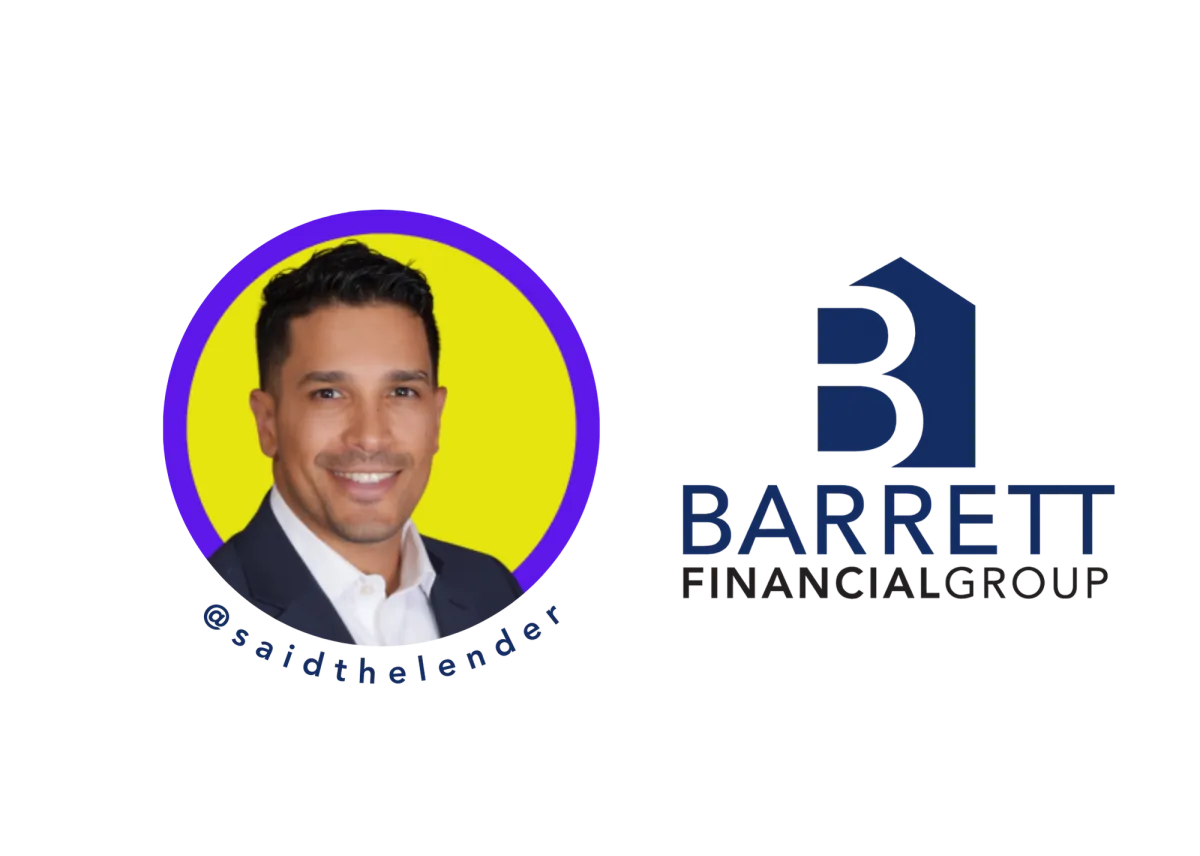
Simplifying Homeownership
See EXACTLY How Much Home You Qualify For Today!

Simplifying Homeownership
See EXACTLY How Much Home You Qualify For Today!
Learning Center

10 Essential Tips for First-Time Homebuyers in Seattle
Buying your first home is an exciting and life-changing experience. However, navigating the homebuying process can feel overwhelming, especially in a competitive market like Seattle. Whether you're looking for a cozy condo in Capitol Hill or a family home in Ballard, these 10 essential tips will help you successfully navigate the Seattle housing market and make your first home purchase a smooth process.
1. Start with Your Budget
Before you even start browsing listings, take a good look at your finances. Determine how much you can afford to spend on a home by considering your income, debts, savings, and expenses. Use a mortgage calculator to estimate monthly payments, and be sure to factor in property taxes, insurance, and maintenance costs. Knowing your budget will help you avoid falling in love with a home that's out of your price range.
2. Get Pre-Approved for a Mortgage
In Seattle's competitive housing market, having a mortgage pre-approval letter is essential. It shows sellers you're a serious buyer and can afford the home you're interested in. Plus, it gives you a clear picture of what you can afford. Work with a local lender or mortgage broker to get pre-approved before you start shopping for homes.
3. Consider Location and Neighborhoods
Seattle is made up of diverse neighborhoods, each with its own unique character. Think about what areas fit your lifestyle and priorities. Do you want to be close to downtown for work or prefer quieter, family-friendly neighborhoods? Take the time to explore Seattle’s neighborhoods such as Ballard, Fremont, Queen Anne, and West Seattle to determine which one aligns with your needs and preferences.
4. Understand the Costs Beyond the Down Payment
While the down payment is often the focus for first-time buyers, it's important to remember the additional costs that come with purchasing a home. Closing costs can add up to 2% to 5% of the home’s purchase price. Don't forget about home inspections, appraisals, and moving expenses. Budgeting for these costs will help prevent any surprises at closing.
5. Work with a Real Estate Agent
A knowledgeable real estate agent can be an invaluable asset in the homebuying process. They will help you navigate listings, negotiate offers, and understand the intricacies of Seattle's housing market. They can also recommend reliable home inspectors, lenders, and contractors. Having an experienced professional on your side can make the entire process less stressful.
6. Don’t Skip the Home Inspection
Even if you’re buying a newly built home, a home inspection is a must. A professional inspector will look for potential issues with the home’s foundation, electrical system, plumbing, and more. This will give you peace of mind knowing you’re making an informed purchase. If the inspection reveals issues, you may be able to negotiate repairs or a lower price with the seller.
7. Know Your Loan Options
There are several loan options available for first-time homebuyers, including FHA loans, USDA loans, and conventional loans. Each type of loan has its own eligibility requirements, down payment amounts, and benefits. Take the time to research your options and work with a mortgage professional to find the best loan for your needs.
8. Plan for Future Growth
When buying your first home, think about the future. Consider whether your home will still meet your needs as your family or career grows. Are there enough bedrooms and bathrooms for your potential needs? Is the home in an area that will continue to appreciate in value? Thinking ahead will ensure your home is a good long-term investment.
9. Don’t Rush the Process
It’s easy to get caught up in the excitement of buying your first home, but it’s important not to rush the process. Take your time to explore different homes, compare prices, and assess all the pros and cons of each property. This will ensure you make a decision that you’re truly happy with.
10. Stay Organized
There’s a lot of paperwork involved in buying a home. Keep track of all documents, including your pre-approval letter, financial statements, inspection reports, and contracts. Staying organized will help you stay on top of deadlines and avoid missing important steps in the homebuying process.
Take the Leap Into Homeownership in Seattle
Buying your first home is a huge milestone, and with the right preparation and guidance, you can make the process much smoother. By setting a budget, getting pre-approved for a mortgage, working with professionals, and staying organized, you’ll be well on your way to finding the perfect home in Seattle. Ready to take the leap? Reach out today to learn more about getting started with your first home purchase in Seattle!
What is the first step in buying a home?
The first step is understanding your budget and getting pre-approved for a mortgage. This helps you know what you can afford and shows sellers that you're a serious buyer. I can guide you through this process to make sure you're prepared and confident.

How much money do I need for a down payment?
Down payments typically range from 3% to 20% of the home’s purchase price, depending on the type of loan you qualify for. There are also programs for first-time homebuyers that may offer down payment assistance. I can help you explore your options.

What does pre-approval mean, and why is it important?
Pre-approval means a lender has evaluated your financial information and determined the loan amount you're eligible for. It’s crucial because it gives you a clear idea of your budget, helps you compete with other buyers, and speeds up the closing process once you find a home.

What types of loans are available for first-time homebuyers?
There are several loan options, including FHA loans, USDA loans, and conventional loans. The best option for you depends on factors like your credit score, income, and the location of the home. I can help you compare the options and choose the best one for your situation.

How do I know if I qualify for a mortgage?
Lenders look at factors like your credit score, income, debt-to-income ratio, and the amount of money you have for a down payment. The good news is that I work with a range of clients, from those with perfect credit to first-time buyers, to help you find the right path to homeownership.

What are closing costs, and how much should I expect to pay?
Closing costs usually range from 2% to 5% of the home's purchase price and cover fees like appraisals, inspections, and lender charges. I’ll help you understand all the costs involved so there are no surprises at the end of the process.

Can I get a mortgage if I have student loans or other debt?
Yes! Many buyers with student loans or other forms of debt still qualify for a mortgage. Lenders look at your overall financial picture, including your income and debt-to-income ratio. Let’s talk through your situation, and I’ll help you find the best solution.

How long does the home buying process take?
The process typically takes about 21 to 45 days from the time you make an offer to closing. However, this can vary depending on factors like inspections, appraisals, and the lender's processing time. I’ll keep you updated every step of the way so you know what to expect.

What happens if my offer on a home is accepted?
Once your offer is accepted, the next steps include signing a purchase agreement, scheduling inspections, and finalizing your mortgage application. From there, the lender will process your loan, and we'll work together to ensure everything is in place for a smooth closing.

How do I know if I’m ready to buy a home?
If you’re financially stable, have a reliable income, and can afford a down payment and monthly mortgage payments, you might be ready. I’ll help you assess your financial readiness and guide you through the process to ensure you’re making the best decision for your future.

What is an FHA loan?
An FHA loan is a government-backed mortgage designed to help first-time homebuyers and those with less-than-perfect credit. It typically requires a lower down payment (as low as 3.5%) and has more flexible credit requirements, making it an excellent option for those who might not qualify for conventional loans.

What is a VA loan, and who qualifies?
A VA loan is a mortgage loan backed by the U.S. Department of Veterans Affairs, designed for military service members, veterans, and certain members of the National Guard and Reserves. It typically requires no down payment or private mortgage insurance (PMI), making it a great option for those who qualify.

What is a USDA loan?
A USDA loan is a government-backed mortgage offered to homebuyers in rural and suburban areas. It requires no down payment and offers competitive interest rates. To qualify, buyers need to meet income and property location requirements, making it a great option for those looking to buy in rural areas.

What is a conventional loan?
A conventional loan is a mortgage that is not insured or backed by the federal government. These loans usually require a higher credit score and a larger down payment than FHA loans, but they come with more flexible terms and potentially lower mortgage insurance costs if you put down at least 20%.

What is a jumbo loan?
A jumbo loan is a type of mortgage that exceeds the conforming loan limits set by the Federal Housing Finance Agency (FHFA). These loans are typically used for luxury or high-value homes and require stricter credit and income qualifications. They also tend to have higher interest rates due to the larger loan amounts.

What is a fixed-rate mortgage?
A fixed-rate mortgage is a loan with an interest rate that stays the same throughout the life of the loan, typically 15, 20, or 30 years. This provides stability and predictable monthly payments, making it a popular choice for many homebuyers.

What is an adjustable-rate mortgage (ARM)?
An adjustable-rate mortgage (ARM) is a type of loan where the interest rate can change periodically based on market conditions. ARMs typically start with lower rates for the first few years and then adjust. While this can offer lower initial payments, it comes with more risk as rates can increase over time.

What is a renovation loan?
A renovation loan, like the FHA 203(k) loan, allows you to finance both the purchase of a home and the cost of repairs or renovations in one loan. This can be a great option if you want to buy a fixer-upper and make improvements to it, as it allows you to finance the project upfront.


"I educate first-time homebuyers so they can make informed decisions"
Said Hamood - Seattle Mortgage Broker - NMLS#1827048
Said Hamood | NMLS #1827048 | Barrett Financial Group, L.L.C. | NMLS #181106 | 275 E Rivulon Blvd, Suite 200, Gilbert, AZ 85297 | TX view complaint policy at www.barrettfinancial.com/texas-complaint | WA MB-181106 | Equal Housing Opportunity | This is not a commitment to lend. *All loans are subject to credit approval. | mlsconsumeraccess.org/EntityDetails.aspx/COMPANY/181106



